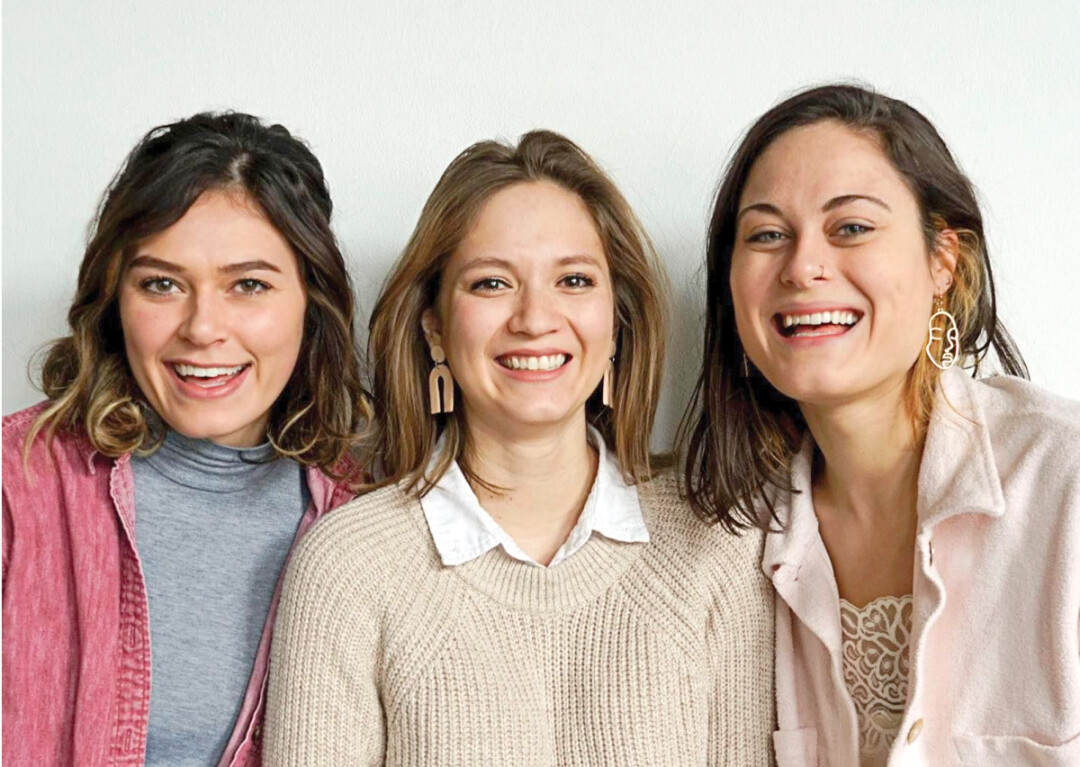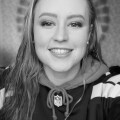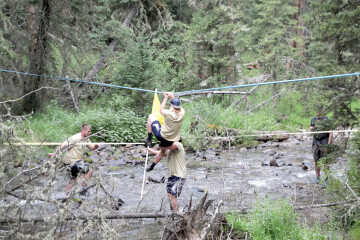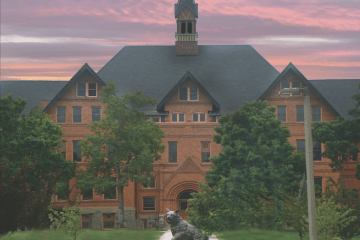Bringing Sexual Health In Focus
A Conversation with Anna Couch, Bailey Mihalovich and Katie Meyer

Anna Couch, Bailey Mihalovich and Katie Meyer are three Montana State University students who have taken a special interest in sexual health as a public health issue. I recently spoke with them about their opportunity to present their story and research at the upcoming TEDxBozeman conference. We discussed their research process, their personal histories with sexual education, and their experience working with the TED organization. The young women hope to continue promoting the importance of sexual health through art and formal education.
Mia Snyder [BM]: Can you talk a little bit about your backgrounds? What are you studying? What year of school are you in? What made you interested in sexual health?
Katie Meyer: Well, we’re all graduating this spring. I’m an art and photography major and I grew up here. I grew up very religious, Christian, and sexually suppressed so through my art, I was reclaiming my sexuality. Then, it was touching other people and I was hearing other people’s stories and realizing that this is bigger than just myself. And I ended up wanting data to put behind these stories and that’s how I met Anna.
Anna Couch: Yes, I’m a writing major, and I minor in Women’s, Gender and Sexuality Studies. And that kind of sparked why we’re doing the research we’re doing, at least for my experience. I have interned at Bridgercare too, as a writing intern. And that was great and helped me launch what I wanted to write about, which is reproductive health.
Bailey Mihalovich: I’m a community health major and I also have a minor in Women’s, Gender, and Sexuality Studies. I’m from rural eastern Montana. So, that has played a huge part in my wanting to provide health education. Honestly, I took a sexuality class my sophomore year of school and I realized how uncomfortable I was with it originally. Then I realized I had a passion for trying to spread that education so everybody felt like they could make the choices that were right for them because I felt like I was not given that education. I intern at Bridgercare now too. Doing this research has been very interesting and we’re trying to make a difference in how we can empower others with their knowledge of their own health.
AC: As a group, we like to talk about what’s taboo, not in the sense that it makes people flush, but to make it okay to talk about it. I know that I, at least, have been hushed and told I wasn’t supposed to talk about this thing, but actually we can and we should normalize it and start a conversation. And because also when we talked to friends, they also didn’t have that knowledge. You’re not alone in this.
BM: Yes, and creating safe spaces to have those conversations, where you’re not going to be judged no matter what your decision or your belief is and it’s totally okay to ask a question and there’s never a question you should already know the answer to.
KM: Well there is so much misinformation and so much fear and poor decisions out there that come from that. A little bit of information is really helpful and empowering when you’re making decisions for yourself and your sexuality and your sexual health.
MS: What made you want to speak or prepare this project for TED, or for the TEDxBozeman conference specifically?
KM: Well that’s easy. Obviously this is academic research but it relates to everyone and so we were really excited to get this from academia into the public. That’s one of the reasons why I am part of the team because I will be making an installation piece that can be a way to have a visual to connect with the public. And then this opportunity came along and we were like, that is amazing. It’s one more step that we can bring what we’ve been finding to the public and to people that can do something about it and make a change.
AC: From the beginning, one of our goals was always to get it out to the community because it was community-based research. And also, I don’t know if you guys are but I’m a first-generation college student. So I didn’t like the idea of the research being stuck in academia and in the institution and college and I wanted to share it.
KM: I’m also first generation.
MS: Wow, okay. How would you describe the culture of TED and of this conference? And how do you fit into this culture as a student and a woman etc.?
AC: I think one of the things I would give credit to, at one of our last sessions with the speaking coaches and the creators of TEDxBozeman, that really stuck with me was that they were supportive of us and reminded us that we’re not on the stage so that people agree with us, but that we’re on this stage to start a conversation. And I think that was very freeing because of the taboo of our topic. I was a little worried going into that first session and being like, ‘Is the person in the room going to be okay with that? Are they going to try to censor us or silence us in any way?’ And they have not and they’ve been very welcoming.
KM: They’re open with us making the audience uncomfortable but in a way that’s not accusing.
BM: They’re very respectful and treat us like we’re intelligent beings which is really great and powerful. Like we’re experts at our topics, and they’re like, ‘no matter who you are, you have such great things to say. Let’s word it in a way that nobody’s going to stop listening right in the first 30 seconds because they don’t want to listen.’ So they’re helping you form your opinion in a way that when someone might not agree with you, they will listen to you the whole time and be like, ‘Okay, I can meet you on a common ground maybe.’ And that’s been really great.
AC: And then what’s the theme this year? How did we talk about that in our application video?
KM: It’s ‘In Focus.’
BM: I think we talked about how because human beings are sexual beings, sexual health is public health. And moving forward we need to treat it like a public health issue. Right now we treat it more like a personal problem.
KM: So talking about that forward-thinking, ‘In Focus,’ let’s also bring sexual education with it.
MS: So I’m curious more about the process. You mentioned that you’ve been going to speaking coaching sessions. What else can you tell me about applying to talk at a TED conference? For you, what was that like?
BM: We had to make a video pitch that was forty seconds long and show your public speaking skills and also your topic. It was like a mini elevator speech really. We did that in December or November, and then you apply and then we found out we were accepted when we got an email over Christmas break.
AC: And then we had the orientation.
BM: And that was fun because we got to meet everyone and hear what everyone else was doing. We’ve gone in for two weeks now to practice our speeches and we have to have it completely done by the end of March, which is almost a week before the presentations. And then we’re going to do dress rehearsals, and so they make sure you’re really prepped.
KM: It’s more intense than we were expecting and it’s taking a lot of our time but it’s going to produce something that is really polished.
AC: I was surprised and grateful that they had speaking coaches. And as a reminder, everyone who is associated with TED, speaking coaches included, are volunteers. I was also glad to see the variety of speakers, not even just topics but backgrounds and ages.
BM: It’s very diverse.
KM: You have all of your speech sessions with at least two other speakers, so you’re hearing everyone’s talks as they evolve. So you are very much connected with everyone else in the event, you’re not a solo act. You’re encouraged to reference other talks if they’ve come before you.
MS: So, are you all speaking?
BM: Yes, we’re a three-person TED talk.
KM: Which has actually been harder to be cohesive than I was expecting. We all have so many thoughts and personal stories and just to try to get them to mesh and have that same inflection that a TED talk does, has been challenging.
MS: What has your research process been like?
BM: It’s been long, we started in August. We went live with our survey in November. And then started interviewing in January and now it’s March and we’re still transcribing and sorting out data. We have all of our quantitative but we’re working on our qualitative. And then Katie’s starting to work on the art install. I think we’ve been meeting once a week since September. I think we’re going to have a sort of ‘what now?’ moment when it’s all over.
MS: That was my next question, like how does this relate to what you will be doing after graduation?
KM: Honestly for me as an artist, it’s making me think differently about grad school because I knew I wanted to get my Master’s in Fine Art either in printmaking or photo. And my topic has always been female body sexuality. But now that we’ve done formal research and it’s gotten such a good response, I am now thinking of ways that I can take that into my art practice. And so I’ll apply to a more interdisciplinary grad school that will include or support my research and then also still be an artist.
AC: I think in my experience, similar to Katie’s, it’s opened up other doors that I’ve wanted to navigate. I really enjoyed this process and this project. And we also started this as our own idea versus a faculty member coming to us and recruiting us. It was really driven by us. It’s felt like ours the whole time. And that’s why I want to pursue something more in the public health sphere. I applied to an internship through the CDC and University of Michigan School of Public Health and one of their internships is over the summer for someone who’s in between undergrad and graduate program. And one of their boxes is like, ‘where do you want to focus?’ and I picked research because this has been so fun.
BM: For me, this research has impacted me short-term. My old guidance counselor asked me this week, after I’ve graduated, to come to the last four weeks of the high school and teach sex ed. They’ve been seeing what I’ve been doing and then they’re noticing some issues with their current program. So that’s really cool. And then, my goal is to be a health educator. So this has been really interesting, I’ll take the NCHES (National Community Health Education Specialist exam) in April and then I can do that anywhere in the country based on what programs people create. So it could be about youth substance abuse or sexual health education. But it’s just reaffirmed that I like education a lot and that’s what I want to do.
MS: Is there anything else you’d like to say about the topic?
KM: Just that we’re talking about something that affects everyone and it’s from your community. And that if you’re a parent with children, this is a really relevant issue.
AC: We’re excited to have the TED stage to spread our message!
The TEDxBozeman conference will occur on October 11, 2020. More information can be found at tedxbozeman.com.


